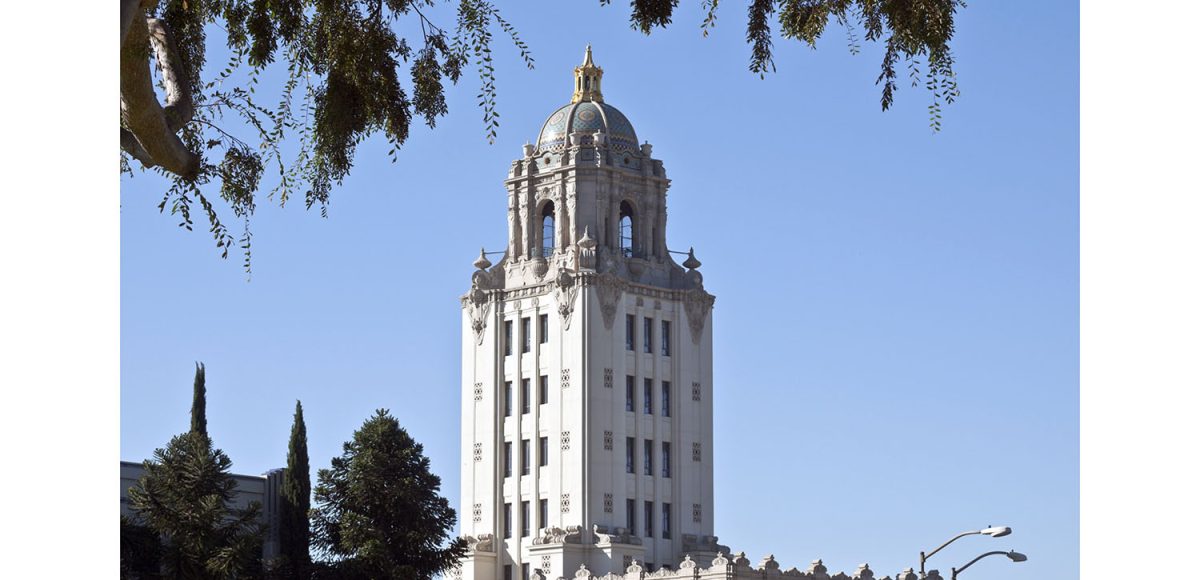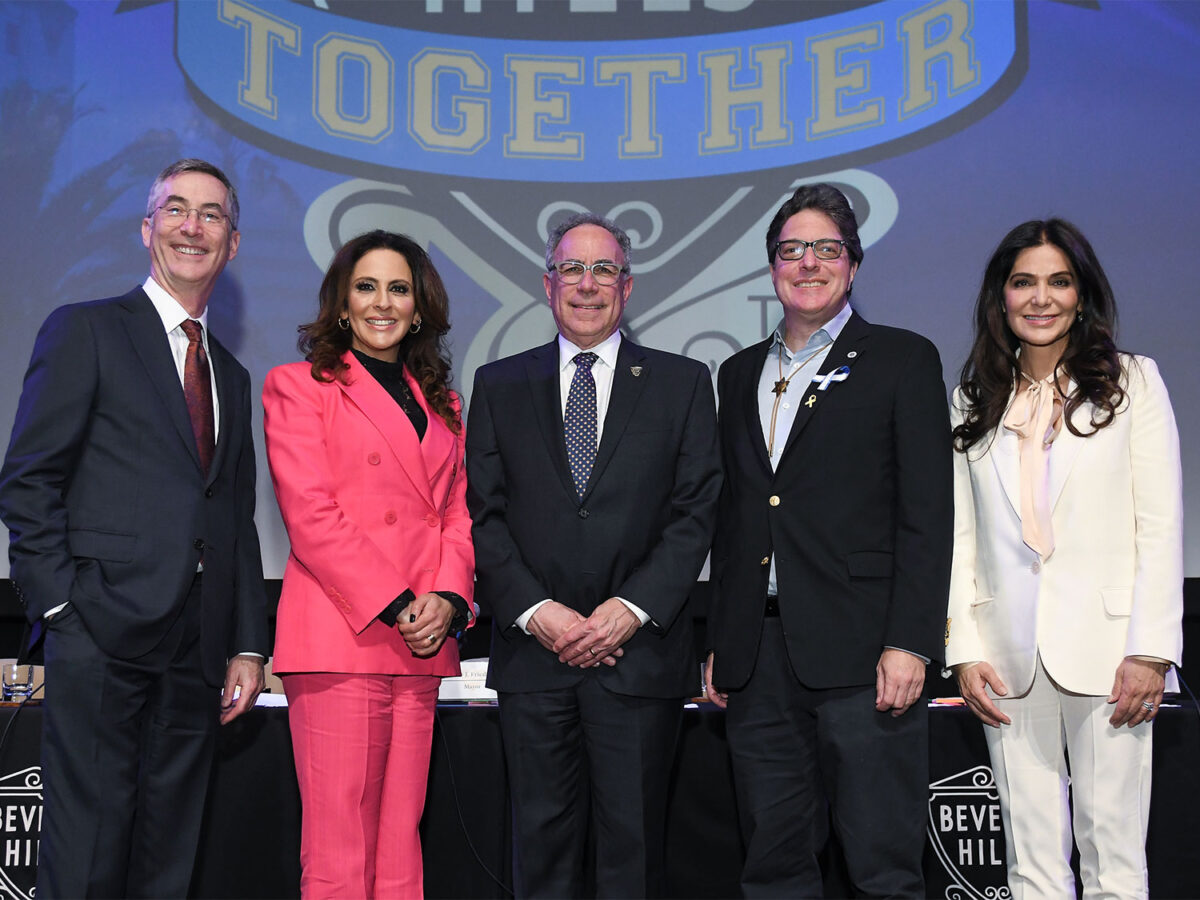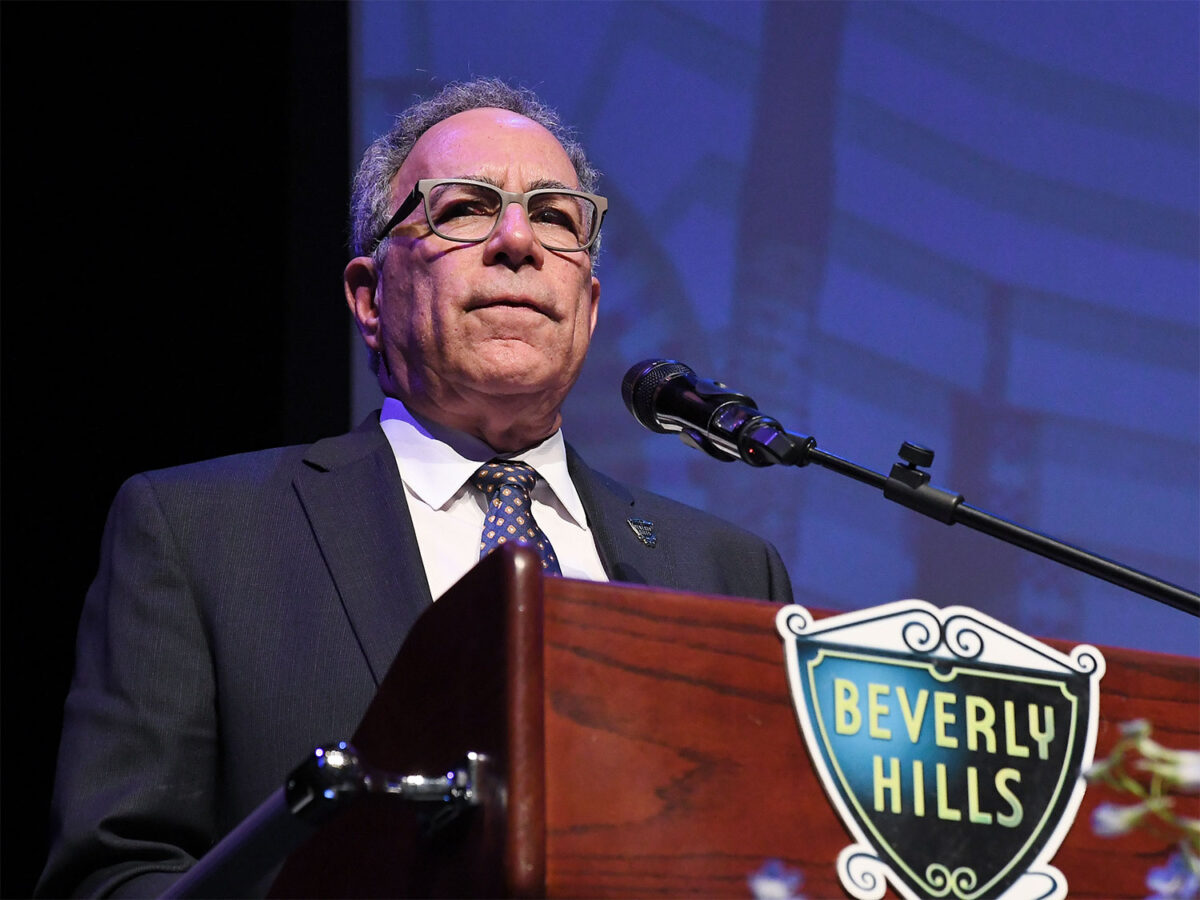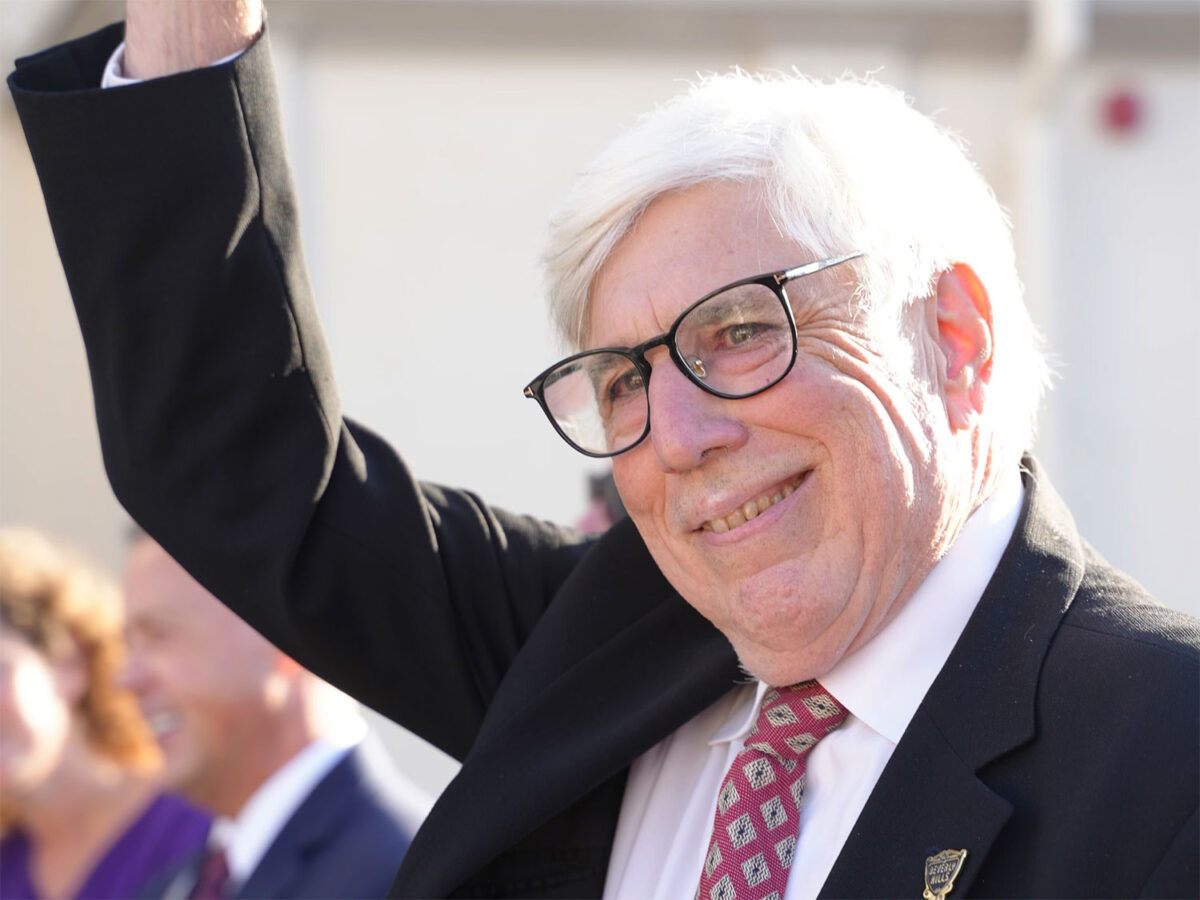When Dan Cooley approached the podium at 1:30 a.m. Wednesday morning, asking the Beverly Hills City Council to greenlight shooting a “Beverly Hills Cop 4” helicopter landing, he knew his audience.
“Make no mistake about it,” said Cooley, a location manager for the upcoming Netflix movie. “This is a hero film about the Beverly Hills Police Department.”
A seven-hour council meeting, from 7 p.m. Tuesday to 2 a.m. Wednesday, went into a few directions including Virginia Robinson Botanical Garden hours (see accompanying story) and a planned single-family home on North Oakhurst Drive (more on this discussion below).
But a theme emerged: Mayor Lili Bosse and the four-person council are very concerned with public safety, and support the Beverly Hills Police Department.
The elected officials backed police in symbolic measures denouncing West Hollywood policy, and the now twice failed effort to recall Los Angeles County District Attorney George Gascón. And the council approved additional police resources.
“Is there anything you need from us or the community to better help you?” Bosse at one point asked Mark Stainbrook, the city’s chief of police.
A rundown of these police-related items:
The City Council’s police support comes amid countywide reexaminations of law enforcement. One place taking a second look is West Hollywood, which may cut up to four sheriff deputies over the next eight months.
West Hollywood also plans to participate in a California pilot program allowing some bars and other retail to be open until 4 a.m. instead of the current 2 a.m last call. The measure, Senate Bill 930, passed a state House committee but has not received full state legislative approval.
Beverly Hills Councilmember Sharona Nazarian moved to have the City of Beverly Hills denounce West Hollywood’s potential 4 a.m. bars. At the meeting, Nazarian said that West Hollywood officials are making Beverly Hills less safe.
“If West Hollywood does adopt this, this is going to have a significant effect on us,” Nazarian said. The councilmember painted the picture of “People drinking at 4 a.m. and then dropping off their kids at 6 a.m.”
Other council members pilloried West Hollywood, which is the only L.A. County municipality slated to partake in the pilot.
“A really stupid idea,” said Councilmember Lester Friedman.
“A ridiculous idea,” Bosse added.
On Aug. 15, the Los Angeles County Registrar/Recorder announced that efforts to hold a recall election of top county prosecutor George Gascón failed, because the campaign did not collect enough credible signatures.
Elected in 2020, Gascón will be up for reelection in two years.
But council members, who feel the DA is soft on crime, expressed disappointment in the recall failure. Moreover, in a free-flowing “discussion” agenda item, members questioned the county for invaliding petition signatures.
“Every signature should count,” said Councilmember John Mirisch. “I would like to have a reckoning as to why there is no opportunity to cure” signatures thrown out because they were duplicate, or people were not registered voters, or address mismatched with voter.
The councilmember suggested “sabotage” by recall opponents to “consciously sign a fake name.”
Such sabotage, Mirisch theorized, speaking at 12:45 a.m., made campaigners falsely complacent in believing they had enough signatures.
Other council members agreed with Mirisch’s general point.
“People were really disappointed and surprised by the results,” Bosse said. “The numbers just don’t add up.”
Petitioners gathered 520,000 valid signatures, in other words names and addresses that cohere with a registered L.A. County voter. But they needed 566,000, or 10% of all county registered voters.
Added Bosse, “The community came out really strong for the recall. I have no faith in this process.”
Without discussion, the council unanimously said ‘yes’ to extra public safety money.
Council members greenlighted a $920,000 contract to Buena Park company Data Specialties Inc. to power the police department dispatch center.
Also, the council voted to provide $278,400 in city monies to National Auto Fleet Group a Watsonville-based company for three extra police vehicles and two fire chief officer vehicles.
In a merging of police and show business, the council allowed a helicopter to land sometime between 8 a.m. to 2 p.m. on Saturday, Sept. 24 at 470 N. Crescent Drive, as part of “Beverly Hills Cop 4.”
Part of the city code bans helicopter landings, necessitating the Netflix Productions request.
“Beverly Hills Cop 4” arrives almost 40 years after the original “Beverly Hills Cop” starring Eddie Murphy.
Not known is what money Netflix will give the city for the landing scene. Cooley, the location manager, vowed “sizable” additional compensation, a sum to be ironed out later by the city attorney and Netflix.
There were other notable items from a hearing exceeding the combined length of the first three “Beverly Hills Cop” movies.
In one, council members denied an appeal from Beverly Hills resident Steve Mayer regarding an already approved single-family home at 331 N. Oakhurst Drive.
In a nine-page appeal petition, Mayer expressed concern that the owner might use the two-story home plus basement to shoot YouTube videos, that a sewer easement could economically impact neighbors and that “noise, dust and vibration” might come from the home.
City records identify the property owner as David Ramin, a physician at Cedars-Sinai. The property owner did not attend the meeting. Instead, Beverly Hills lawyer Murray Fischer represented the project applicant.
Mayer himself is not a 331 North Oakhurst Drive neighbor. Per city records, the mailing address Mayer provided is not in the project’s zip code of 90210, rather is 90209.
Mayer successfully accessed 3,613 pages regarding the home through a Public Records Act request, the Planning Department noted. And Mayer, the city noted, is set to receive thousands of more pages through records requests.
Council members denied Mayer’s appeal following assurances further project changes would lead to added review.
Finally, in the early morning hours, council members appropriated – despite skepticism – $142,900 for Next Night, a self-described street festival on Saturday, Oct. 22 at South Beverly Drive between Charleville Drive and Gregory Way.
The money goes to Authentic Agency, a Venice-based company that bills itself as, “An experiential marketing and production agency.”
Skepticism arose from city manager’s ask for $35,000 toward a “C-level talent” that could perform at the show.
Council members mistakenly thought that was enough money for the biggest names in music. Mirisch repeatedly, and half-jokingly, suggested Joni Mitchell perform.
An “A-level” household name would probably cost the city north of a $1 million, Deputy City Manager Gabriella Yap explained.
But $35,000 could “secure someone with some name value.”







